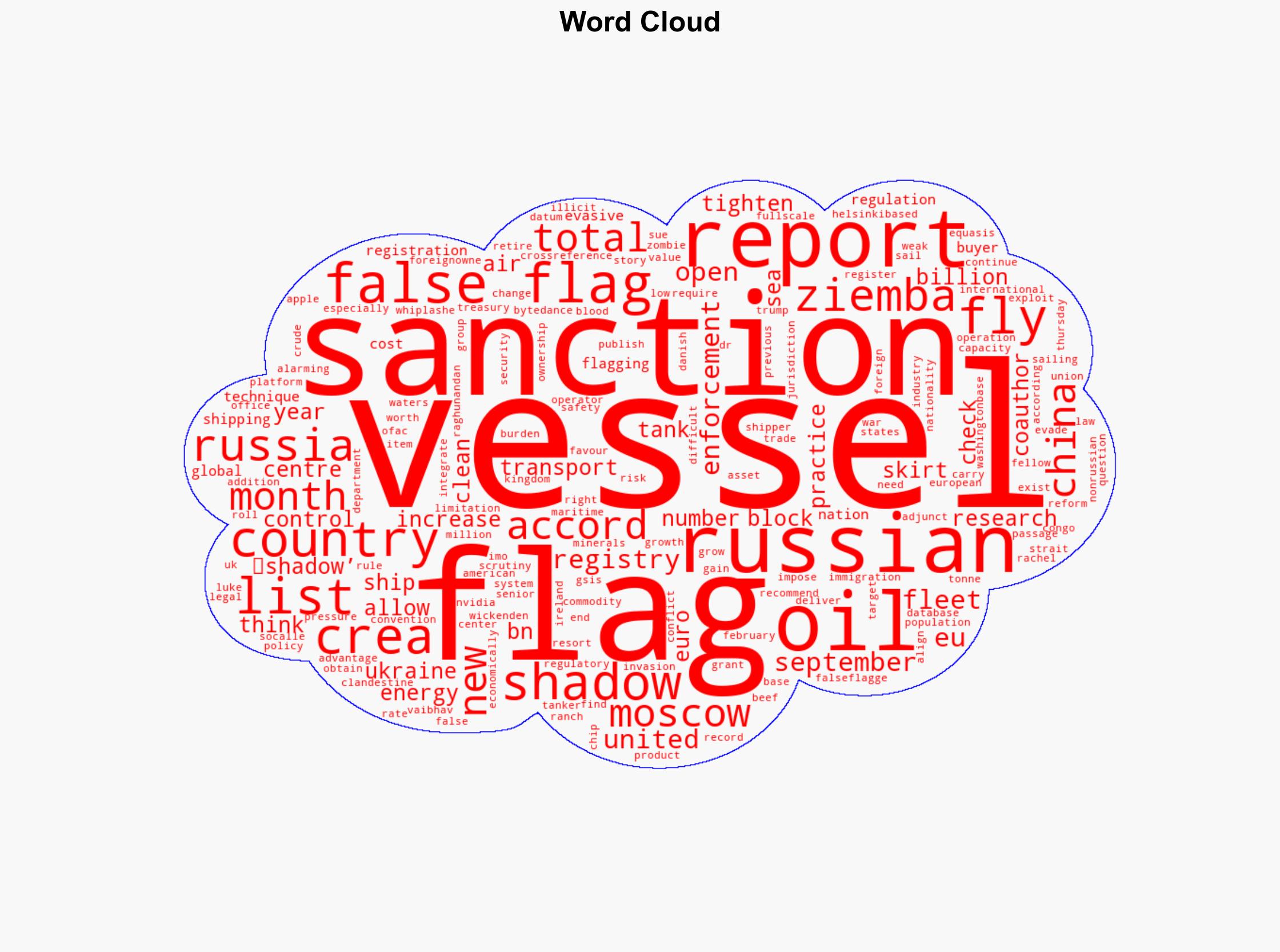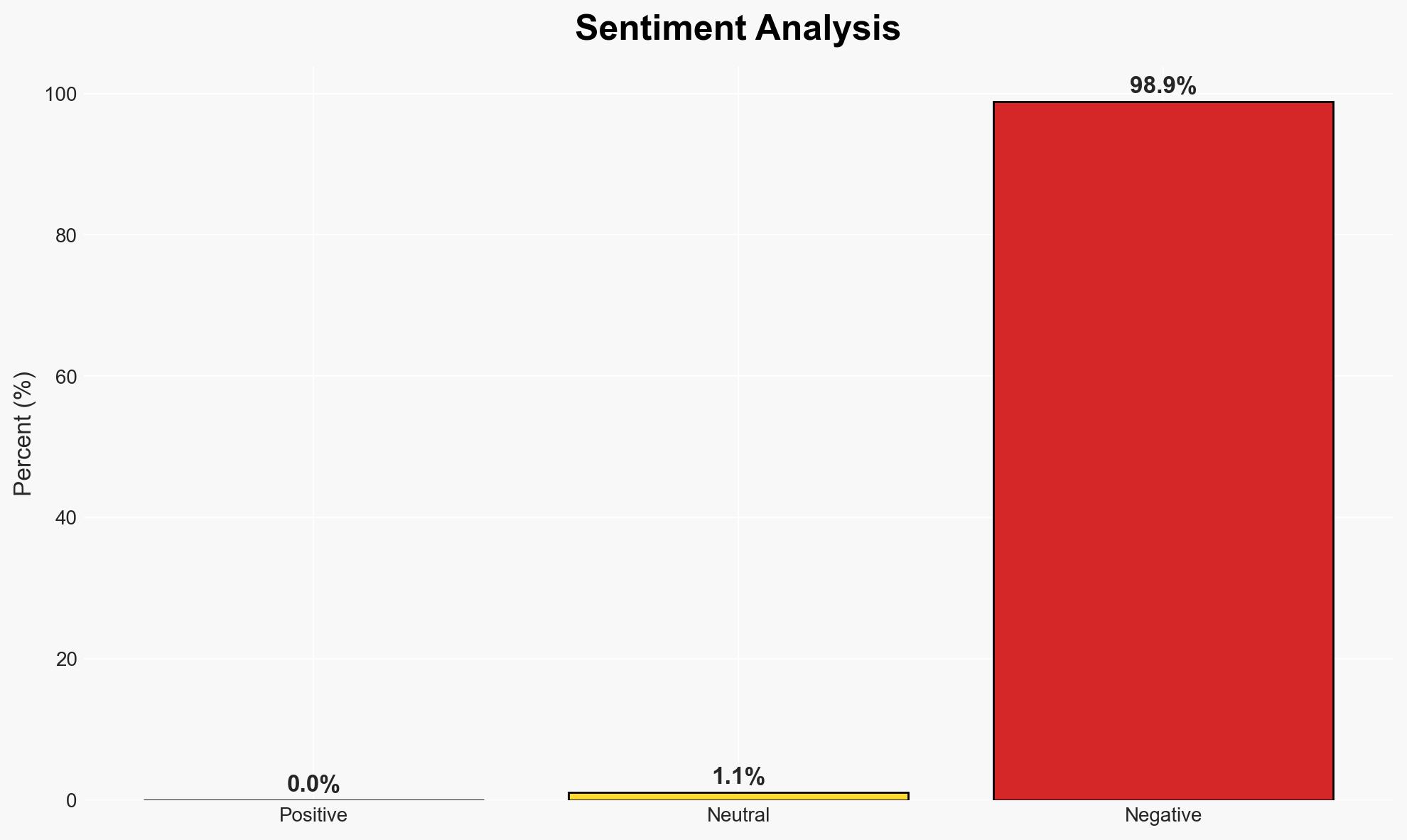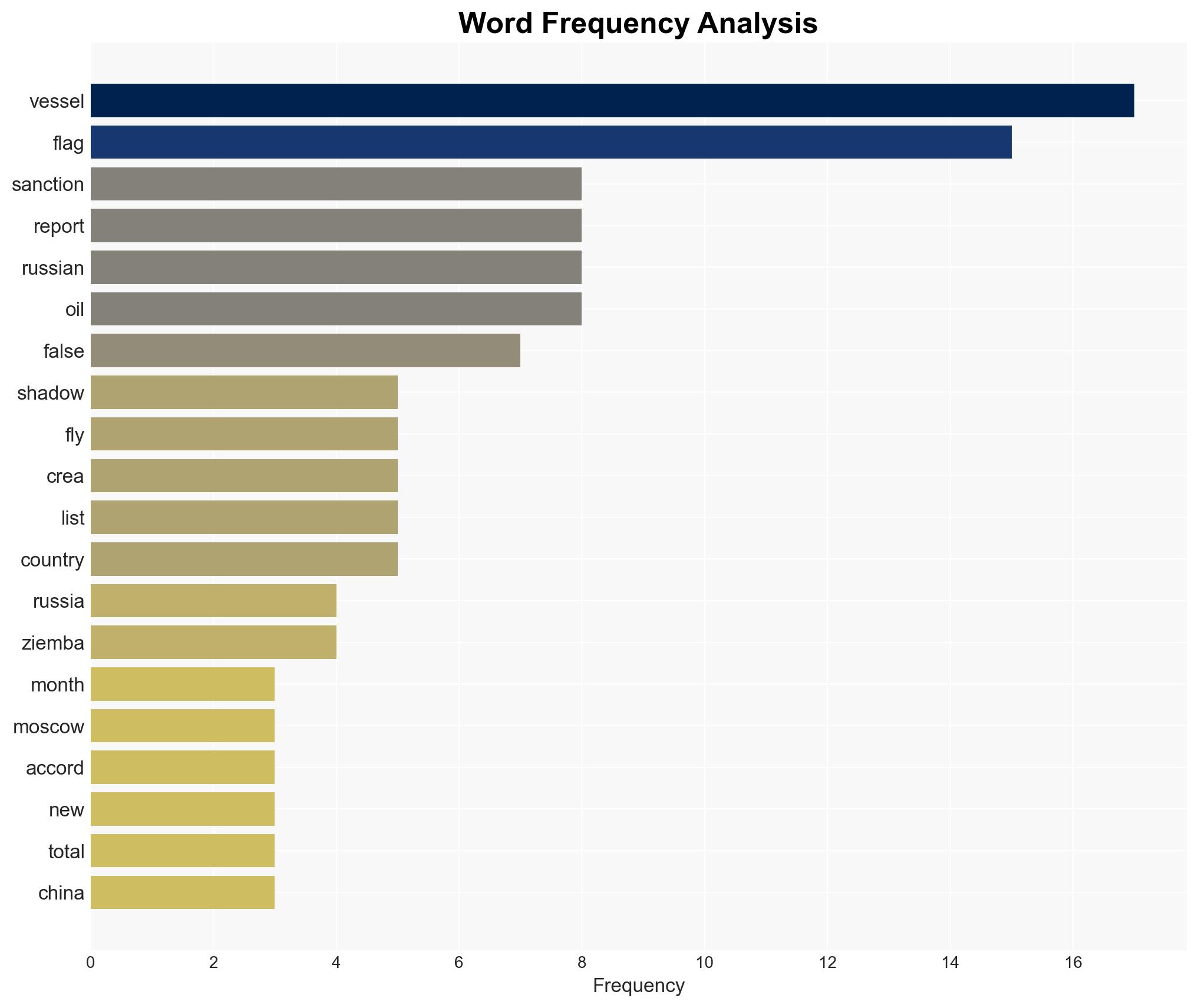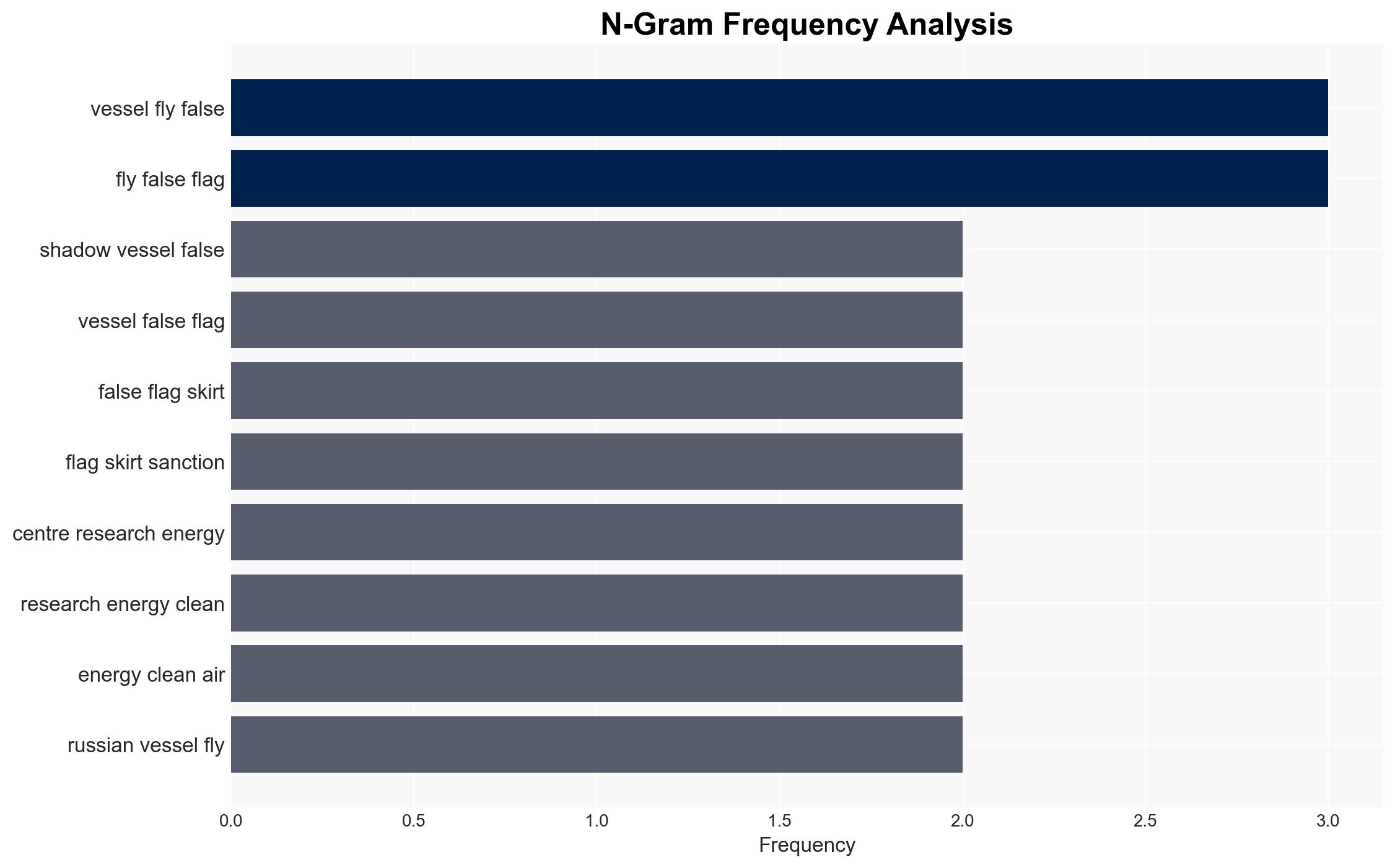Russian Shadow Fleet Employs False Flags to Evade Sanctions, New Report Reveals
Published on: 2025-11-27
AI-powered OSINT brief from verified open sources. Automated NLP signal extraction with human verification. See our Methodology and Why WorldWideWatchers.
Intelligence Report: Russias shadow vessels using false flags to skirt sanctions report says
1. BLUF (Bottom Line Up Front)
Russia is reportedly using “shadow vessels” flying false flags to evade international sanctions, particularly in the oil sector. This tactic poses significant challenges to enforcement efforts by the EU, UK, and US. The most likely hypothesis is that Russia will continue to exploit regulatory loopholes to sustain its oil exports. The overall confidence level in this assessment is moderate due to existing information gaps and potential biases in source reporting.
2. Competing Hypotheses
- Hypothesis A: Russia is systematically using false-flagged vessels to circumvent sanctions, maintaining its oil export levels despite international restrictions. This is supported by reports of increased false flagging and the economic value of the oil transported. However, there is uncertainty regarding the full extent of this practice and its effectiveness in completely bypassing sanctions.
- Hypothesis B: The reports of false flagging are exaggerated, and the actual impact on sanction evasion is minimal. This could be supported by potential biases in the reporting sources or misinterpretation of vessel registration data. Contradicting evidence includes consistent findings from multiple reports and the economic incentives for Russia to engage in such practices.
- Assessment: Hypothesis A is currently better supported due to corroborating reports and the strategic importance of oil exports to Russia’s economy. Indicators that could shift this judgment include new data on enforcement effectiveness or changes in international maritime regulations.
3. Key Assumptions and Red Flags
- Assumptions: Russia has the capability and intent to use false flagging as a strategic tool; international maritime regulations are insufficiently enforced; economic incentives drive continued false flagging.
- Information Gaps: Detailed data on the number of vessels involved, specific routes used, and the effectiveness of current enforcement measures.
- Bias & Deception Risks: Potential bias in source reporting from entities with vested interests; risk of misinformation from Russian or allied sources to obscure true activities.
4. Implications and Strategic Risks
This development could lead to increased tensions between Russia and sanction-imposing countries, complicating diplomatic relations and enforcement efforts. Over time, it may prompt regulatory reforms or increased naval patrols in key shipping lanes.
- Political / Geopolitical: Potential escalation in diplomatic disputes and pressure on international bodies to tighten maritime regulations.
- Security / Counter-Terrorism: Increased risk of confrontations at sea, potentially involving military assets to enforce sanctions.
- Cyber / Information Space: Possible use of cyber operations to track or disrupt false-flagged vessels; information warfare to shape narratives.
- Economic / Social: Continued Russian oil exports could stabilize its economy, affecting global oil prices and economic sanctions’ effectiveness.
5. Recommendations and Outlook
- Immediate Actions (0–30 days): Enhance monitoring of maritime traffic using satellite and AIS data; increase intelligence sharing among allies.
- Medium-Term Posture (1–12 months): Develop partnerships with countries hosting flag registries; invest in maritime enforcement capabilities.
- Scenario Outlook:
- Best: Effective international cooperation leads to significant reduction in false flagging.
- Worst: Escalation into military confrontations at sea.
- Most-Likely: Continued evasion efforts with incremental improvements in enforcement.
6. Key Individuals and Entities
- Centre for Research on Energy and Clean Air (CREA)
- Luke Wickenden (Report Co-author)
- Vaibhav Raghunandan (Report Co-author)
- Rachel Ziemba (Adjunct Senior Fellow, Center for a New American Security)
- Not clearly identifiable from open sources in this snippet.
7. Thematic Tags
Structured Analytic Techniques Applied
- Cognitive Bias Stress Test: Expose and correct potential biases in assessments through red-teaming and structured challenge.
- Bayesian Scenario Modeling: Use probabilistic forecasting for conflict trajectories or escalation likelihood.
- Network Influence Mapping: Map relationships between state and non-state actors for impact estimation.
Explore more:
National Security Threats Briefs ·
Daily Summary ·
Support us





